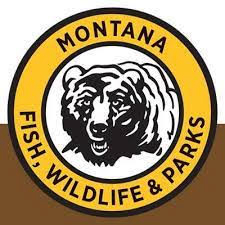
|
Hunters play an important part in helping Montana Fish, Wildlife & Parks learn where chronic wasting disease (CWD) is and how it spreads. When hunters have their harvested deer, elk and moose tested for CWD, they provide key insights into the effectiveness of CWD management, the disease’s prevalence and its presence.
Each year, FWP establishes priority sampling areas where we are particularly interested in sampling animals. FWP needs samples not only from hunting districts (HDs) where CWD is known to be, but also in HDs where it hasn’t yet been detected. If we don’t know where it is, we can’t stop the spread.
“The more we know about the prevalence of the disease and how it spreads, the more we can do to protect our herds and protect the future of hunting,” said FWP Wildlife Division Administrator Ken McDonald. “We need the help of hunters to gain this information. Testing also enables hunters to understand and make decisions about eating the meat of animals they have harvested.”
This year, FWP has identified CWD priority sampling areas in southwestern, central and east-central Montana. These are areas where FWP wants to focus special attention to gather data on the prevalence of the disease. There are also new CWD testing requirements for tags associated with CWD management near Libby within HDs 100, 103 and 104; please review the 2024 hunting regulations to determine if testing requirements apply.
However, FWP encourages hunters with harvested game to stop at CWD sampling stations, even outside the priority sampling areas and the required testing areas. FWP will have at least 34 stations spread throughout the state where harvested animals can be sampled. To see a list of CWD sampling sites and dates and times of operation, click here
Testing is voluntary, except for in the districts near Libby, and free. FWP can help hunters collect samples needed for testing when they bring their animal (or head) to a CWD sampling station or to most FWP offices. Not all FWP offices can offer help with sampling; it’s best to call ahead to check on availability. Hunters can also take the samples themselves, fill out the online hunter submission form and mail the samples to the Wildlife Health Lab in Bozeman (ATTN: Wildlife Health Lab - CWD, 1400 S. 19th Ave., Bozeman, MT 59718). For more information on how to take your own samples, or the location of sampling stations visit fwp.mt.gov/conservation/chronic-wasting-disease/get-your-animal-sampled.
If an animal tests positive and the hunter chooses not to consume the meat, they can request a new license for this year or next year. To request a new license and coordinate next steps, hunters should call the local FWP regional office or the licensing call center at 406-444-2950. The carcass will need to be disposed of in a Class II landfill and antlers will need to be turned in to FWP.
FWP strongly recommends that hunters who intend to donate their deer, elk or moose to a food bank have the animal tested beforehand. Animals that test positive should be disposed of in a Class II landfill.
For more information about CWD, visit fwp.mt.gov/cwd.